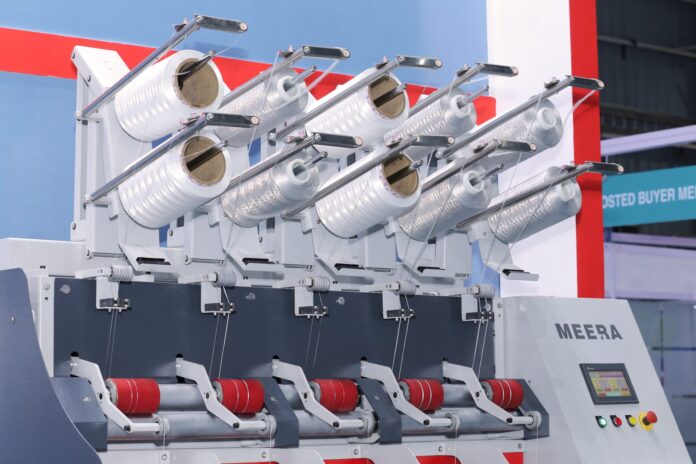“New investments in the textile segment will provide much aid and encouragement to local manufacturers, enabling them to become ‘Aatmanirbhar’ (Self-reliant) and produce quality medical textile products to cater to both domestic and international markets.” – writes Mr Raj Manek
Known as India’s sunrise sector, the Indian technical textile industry has witnessed incredible growth over the years emerging as the fastest growing sub-segment, thanks to its flourishing raw material market and a multitudinous-yet affordable labour force.
While the industry serves a variety of segment with its versatile application areas, medical textiles have witnessed the strongest growth in the recent period. During the critical stages of lockdown when global trade came to a grinding halt, the medical textile showed its utmost resilience and provided a much needed boost to the economy by emerging from primary importer of PPE kits to becoming its “second largest producer” in just two months. By the end of 2020, India had exported over 20 million PPE kits and more than 40 million N-95 respirators around the globe, including countries such as US, the UK, UAE, Slovenia and Senegal.*
“This incredible milestone epitomises India’s local manufacturing strength and foreshadows what the industry can achieve in the coming years.”, shares Mr Raj Manek, Managing Director of Messe Frankfurt India, and the organiser of leading industry trade fair – Techtexil India.
“New schemes and policies to uplift the textile segment will provide much aid and encouragement to local manufacturers, enabling them to become ‘Aatmanirbhar’ (Self-reliant) and produce quality medical textile products to cater to both domestic and international markets.”. elaborates Mr Manek.
While technical textile is one of India’s most prominent segments, its consumption rate is pegged only at 5-10% as compared to 30-70% consumption in more developed countries. Efficient channelling of resources and improvement in local supply chain is therefore crucial to produce and sell goods at reasonable rates, and gain a competitive advantage over other foreign players in the market.
An estimated outlay of INR 1,480 crore (USD 211.76 million)* proposed under National Technical Textiles Mission is set to give a fillip to key application segments, including medical textiles. Indian Prime Minister, Narendra Modi in his recent address to textile industry stakeholders has also urged micro, small and medium enterprises to focus on adopting global standards, so as to partner with global sourcing giants and tap into international markets.
As the Indian technical textile segment continues to gain more attention, this year’s edition of Techtexil India will reunite stakeholders across the twelve application areas to showcase their innovations and discuss new pathways for the future.
The global medical textile market valued USD 13 Billion in 2020 is expected to reach USD 17 Billion by 2026 at a CAGR of 4%. Going forward, the development of local supply chain coupled with disciplined product standards will enable India to emerge as a leading exporter of medical textile products in the coming years.
Post time: Apr-07-2021






